Mindful baking eases your anxious mind by combining the therapeutic act of baking with mindfulness techniques. As you focus on the present moment and engage your senses, you'll release feel-good neurotransmitters and activate your parasympathetic nervous system. This practice helps quiet racing thoughts and cultivates patience through slow, deliberate processes. You'll learn to embrace imperfections and nurture creativity, fostering self-expression and reducing stress. Sharing your baked goods can strengthen social connections and boost your self-esteem. By incorporating mindfulness into your baking routine, you'll discover a powerful tool for managing anxiety and promoting overall well-being. Explore further to uncover the full potential of this calming practice.
Understanding Mindful Baking
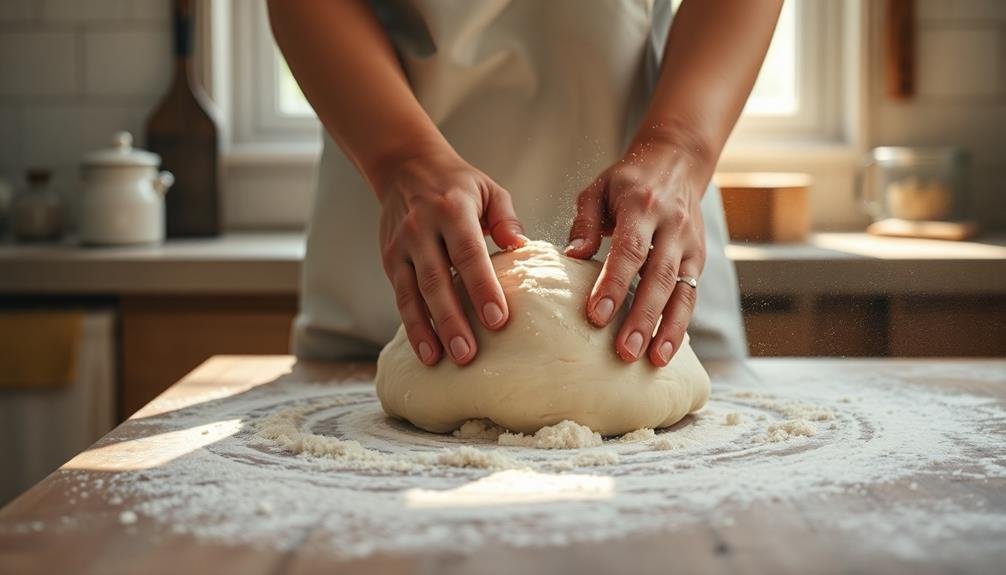
Mindful baking is a therapeutic practice that combines the art of baking with mindfulness techniques to reduce anxiety. It involves focusing your attention on the present moment while engaging in the baking process, allowing you to disconnect from worries and stress.
When you practice mindful baking, you're fully immersed in each step, from measuring ingredients to kneading dough or decorating cakes. You'll pay close attention to the textures, smells, and sounds around you, grounding yourself in the sensory experience. This heightened awareness helps calm your mind and reduces racing thoughts.
Unlike regular baking, mindful baking isn't about the end product. It's about the journey and the process itself. You're not rushing to finish or worrying about perfection. Instead, you're savoring each moment and accepting imperfections as part of the experience.
Mindful baking also incorporates breathing exercises and meditation techniques. As you work, you'll focus on your breath, letting go of distracting thoughts and returning your attention to the task at hand. This practice helps cultivate a sense of calm and presence, reducing anxiety symptoms and promoting overall well-being.
The Science Behind Baking Therapy
Baking therapy's scientific foundation rests on a combination of psychological and physiological effects. When you engage in baking, your brain releases neurotransmitters like dopamine and serotonin, which are associated with pleasure and mood regulation. These chemical changes can help alleviate symptoms of anxiety and depression.
The repetitive nature of baking activities, such as kneading dough or stirring batter, can induce a meditative state. This mindfulness practice activates your parasympathetic nervous system, reducing stress hormones like cortisol and promoting relaxation.
Additionally, the sensory experience of baking—smelling aromatic ingredients, feeling different textures, and tasting the final product—engages multiple areas of your brain, promoting cognitive focus and distracting from anxious thoughts.
Baking also taps into your creativity, which can boost self-esteem and provide a sense of accomplishment. The act of creating something tangible can be particularly therapeutic, as it gives you a sense of control and mastery.
Furthermore, sharing your baked goods with others can foster social connections, further enhancing your emotional well-being and reducing feelings of isolation often associated with anxiety.
Focusing on Sensory Experiences
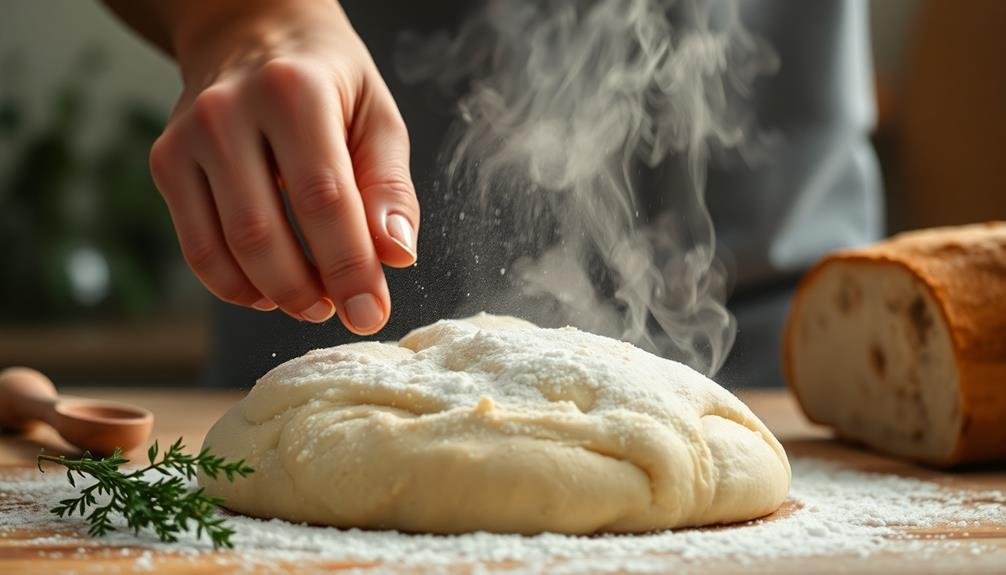
The sensory-rich experience of baking offers a powerful tool for managing anxiety. When you engage in mindful baking, you're immersing yourself in a world of textures, aromas, and flavors that can help ground you in the present moment.
As you measure ingredients, feel the grainy texture of sugar or the silky smoothness of flour between your fingers. Notice the coolness of butter as you cream it with sugar, and observe how it transforms into a light, fluffy mixture.
Listen to the rhythmic sound of your whisk or mixer, focusing on the changing consistency of your batter. Inhale deeply as you add vanilla extract or spices, allowing their fragrances to fill your senses.
Watch as your creation takes shape in the oven, observing the gradual browning and rising of your baked goods. Finally, savor the warm, comforting aroma that fills your kitchen as you remove your finished product from the oven.
Embracing the Present Moment
As you bake mindfully, you'll naturally embrace the present moment through your sensory experiences.
Quiet your inner critic and allow yourself to fully engage with the task at hand without judgment.
Focus on Sensory Experiences
Senses come alive when you engage in mindful baking, helping you embrace the present moment fully. As you measure ingredients, mix batters, and shape doughs, you're immersed in a world of sensory experiences that ground you in the here and now.
Focus on each sense as you bake:
| Sense | Experience | Mindful Action |
|---|---|---|
| Sight | Colors, textures, shapes | Observe ingredient changes |
| Sound | Mixing, chopping, sizzling | Listen to kitchen rhythms |
| Smell | Aromas of ingredients | Inhale deeply, savor scents |
| Touch | Textures of ingredients | Feel dough, utensils, surfaces |
| Taste | Flavors of raw ingredients | Sample mindfully (if safe) |
Silence Inner Critical Voice
While baking mindfully, you might notice your inner critic attempting to disrupt your focus. This voice may question your abilities, compare your results to others, or point out perceived flaws in your technique. Instead of letting these thoughts derail your present-moment awareness, acknowledge them without judgment and gently redirect your attention back to the task at hand.
Practice observing your thoughts as if they're passing clouds, allowing them to drift by without attaching significance to them. When you catch yourself engaging in negative self-talk, take a deep breath and remind yourself that perfection isn't the goal.
Embrace the imperfections in your baking process as part of the journey. Replace critical thoughts with self-compassionate ones. Instead of "I can't do this right," try "I'm learning and improving with each attempt."
Focus on the joy of creating rather than achieving a specific outcome. By consistently redirecting your attention to the present moment and treating yourself with kindness, you'll gradually quiet the inner critic and cultivate a more peaceful, anxiety-free baking experience.
Practice Non-Judgmental Awareness
Non-judgmental awareness forms the cornerstone of mindful baking for anxiety relief. As you engage in the baking process, focus on observing your thoughts, feelings, and sensations without labeling them as good or bad. Accept each moment as it unfolds, embracing the present without getting caught up in worries about the future or regrets about the past.
When you're baking mindfully, pay attention to the following sensory experiences:
| Sight | Sound | Touch |
|---|---|---|
| Colors of ingredients | Mixer whirring | Texture of dough |
| Rising dough | Timer ticking | Warmth of the oven |
| Golden-brown crust | Sizzling butter | Smooth icing |
As thoughts arise, acknowledge them without getting attached. If you find yourself judging your baking skills or the outcome, gently redirect your focus to the present moment. Remember, the goal isn't perfection but rather the experience itself. By practicing non-judgmental awareness, you'll cultivate a sense of calm and acceptance that extends beyond the kitchen. This mindful approach to baking can help reduce anxiety by teaching you to approach life's challenges with greater equanimity and less self-criticism.
Cultivating Patience Through Baking
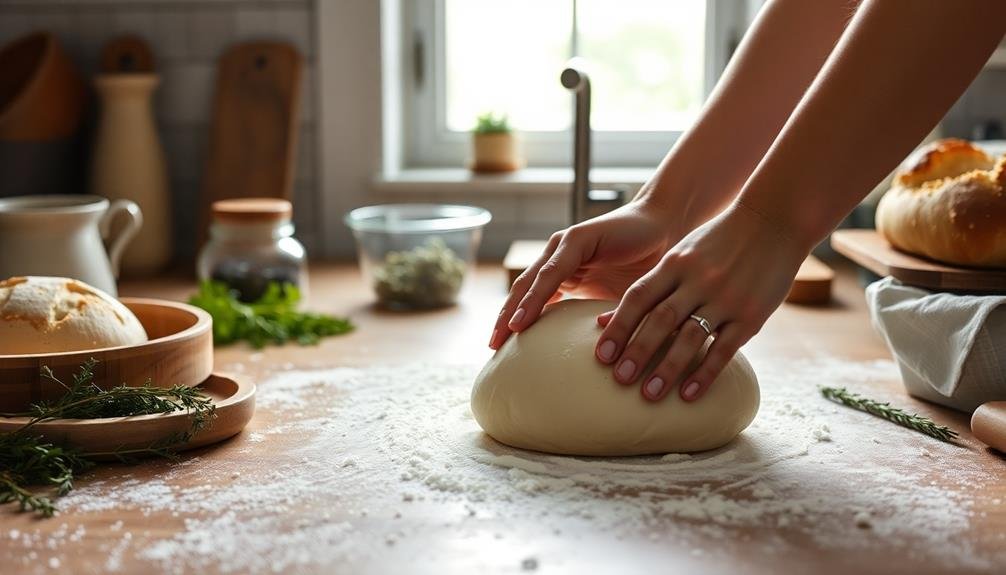
Baking inherently teaches you patience through its slow and steady process.
As you mix ingredients, wait for dough to rise, or watch your creation bake in the oven, you're learning to embrace the journey rather than rush to the destination.
Slow and Steady Process
Through the slow and steady process of baking, you'll find opportunities to cultivate patience and mindfulness. As you measure ingredients, mix batters, and wait for dough to rise, you're forced to slow down and focus on each step. This deliberate pace allows you to practice being present in the moment, rather than rushing through tasks or worrying about the future.
When you're kneading bread dough, for example, you can't hurry the process. You must work the dough until it reaches the right consistency, which requires time and attention.
Similarly, waiting for cookies to bake or a cake to cool teaches you to embrace delayed gratification. You learn that good things often take time and that rushing can lead to subpar results.
The slow nature of baking also provides moments for reflection. As you wait for your creation to finish in the oven, you can use this time to practice deep breathing or mindfulness exercises.
Embracing Imperfection in Baking
An often overlooked aspect of mindful baking is embracing imperfection. As you mix ingredients and shape dough, you'll inevitably encounter moments when things don't go as planned. Maybe your cake doesn't rise perfectly, or your cookies spread too much. Instead of getting frustrated, use these instances as opportunities to practice acceptance and non-judgment.
Recognize that imperfections are part of the baking process and can even lead to delightful surprises. When you let go of rigid expectations, you'll find yourself more present in the moment, focusing on the sensory experience rather than the end result. This shift in perspective can greatly reduce anxiety and promote a sense of calm.
Moreover, embracing imperfection in baking can translate to other areas of your life. You'll learn to be gentler with yourself when facing challenges and to appreciate the beauty in unexpected outcomes.
Nurturing Creativity and Self-Expression
While anxiety can stifle creativity, mindful baking offers a unique avenue for self-expression and artistic exploration. As you immerse yourself in the process, you'll find opportunities to experiment with flavors, textures, and presentations.
This creative freedom allows you to break free from the constraints of anxious thoughts and tap into your innate artistic abilities.
When you're mindfully baking, you're not just following a recipe; you're creating a personal masterpiece. You'll discover that each bake is a canvas for your imagination, where you can:
- Blend unexpected flavor combinations
- Experiment with unique decorating techniques
- Adapt recipes to reflect your personal taste and dietary needs
Sharing Baked Goods With Others
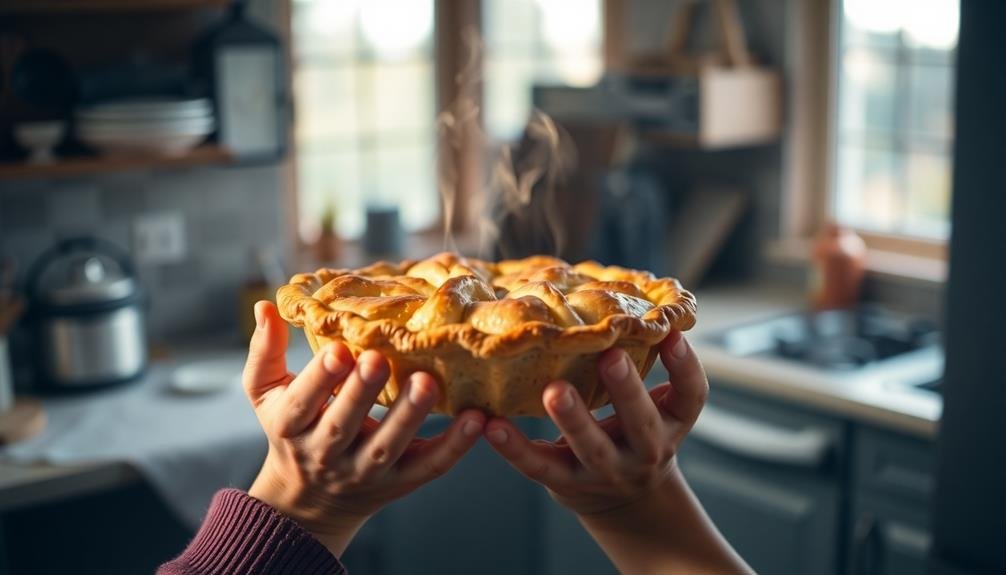
As you cultivate your baking creativity, you'll find joy in sharing your creations with others. This act of giving can markedly reduce anxiety by fostering connections and boosting your self-esteem. When you offer homemade treats, you're not just sharing food; you're sharing a piece of yourself and your journey.
Consider the various ways you can share your baked goods:
| Recipient | Occasion | Benefit |
|---|---|---|
| Family | Daily meals | Strengthens bonds |
| Friends | Gatherings | Enhances social connections |
| Coworkers | Office events | Improves workplace relationships |
| Community | Bake sales | Contributes to local causes |
By sharing your baked goods, you're practicing gratitude and generosity, which are powerful antidotes to anxiety. You'll also receive positive feedback, reinforcing your baking skills and boosting your confidence. Remember, the act of giving itself can trigger the release of endorphins, creating a natural mood lift.
Don't hesitate to use your baking as a tool for social connection. Invite friends for a baking session or organize a cookie exchange. These activities not only share your creations but also create memorable experiences that combat isolation and anxiety.
Frequently Asked Questions
Can Mindful Baking Help With Specific Mental Health Conditions?
Mindful baking can indeed help with specific mental health conditions. You'll find it beneficial for anxiety, depression, and stress management. It's a therapeutic activity that engages your senses, promotes focus, and provides a sense of accomplishment.
How Long Should I Practice Mindful Baking to See Anxiety-Reducing Effects?
You'll likely notice anxiety-reducing effects from mindful baking after a few sessions. However, consistency is key. Try practicing for 15-30 minutes, 2-3 times a week, for at least a month to experience more significant benefits.
Are Some Baking Recipes Better for Mindfulness Than Others?
You'll find that simpler recipes are often better for mindfulness. Focus on tasks like kneading dough, decorating cookies, or measuring ingredients. These allow you to concentrate fully on the present moment, enhancing your mindful baking experience.
Can Children Benefit From Mindful Baking Practices?
Yes, children can greatly benefit from mindful baking. You'll find it helps them focus, develop patience, and boost self-esteem. It's a fun way to teach kids about being present, following instructions, and enjoying the process of creation.
How Does Mindful Baking Compare to Traditional Meditation Techniques?
You'll find mindful baking shares similarities with traditional meditation. It engages your senses, keeps you present, and calms your mind. Unlike seated meditation, it's active and results in a tangible product you can enjoy afterward.
In Summary
You've discovered a powerful tool for easing anxiety through mindful baking. By focusing on the present, engaging your senses, and embracing creativity, you're nurturing your mind and soul. Remember, it's not just about the end product; it's the journey that matters. As you continue to practice mindful baking, you'll find yourself more centered, patient, and fulfilled. So preheat that oven, grab your ingredients, and let the healing power of baking transform your anxious mind.


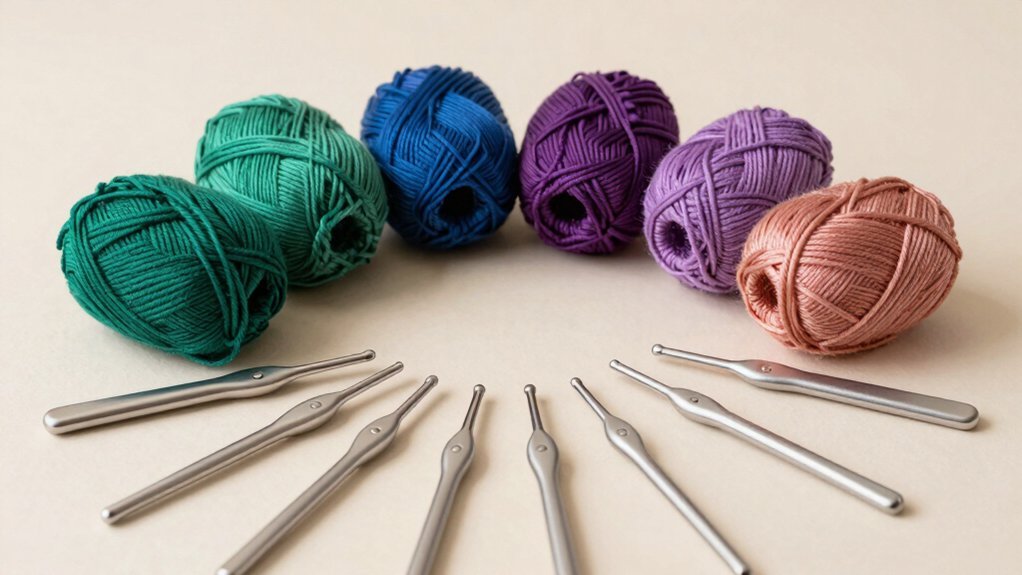
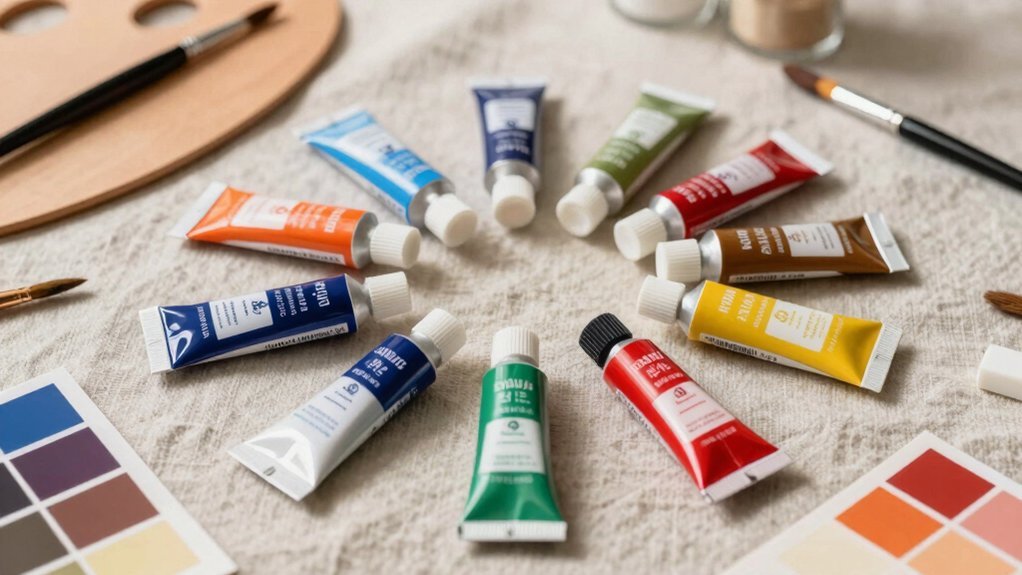
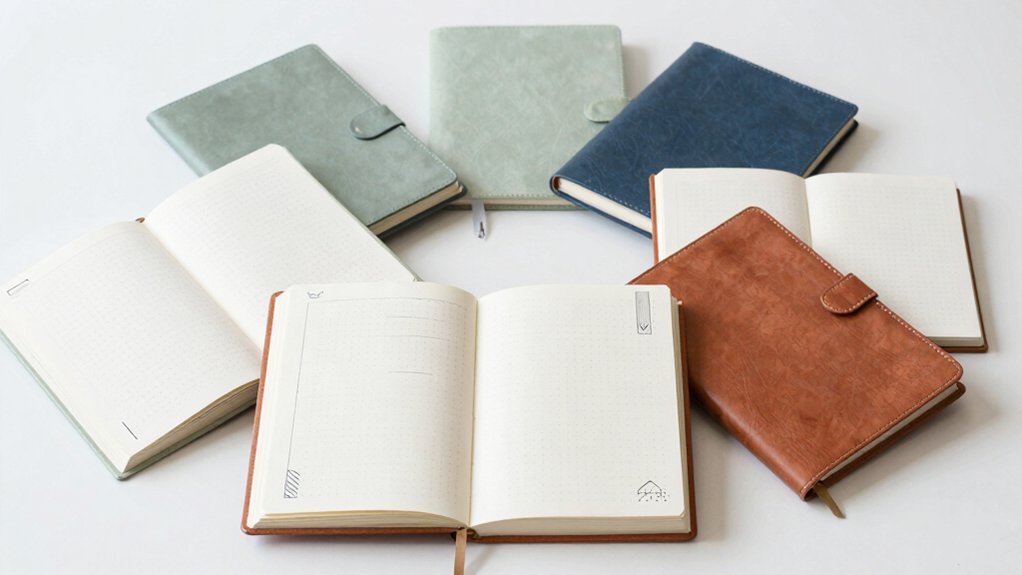
Leave a Reply